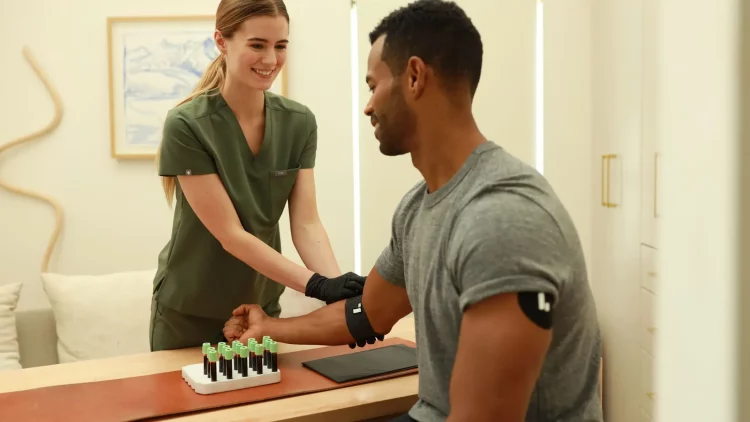What Is Biofeedback and Why Is It Gaining Popularity?
In a world where chronic pain affects over 50 million Americans alone, and prescription drugs often come with side effects or risks of dependency, a growing number of people are turning to biofeedback—an ancient-meets-modern technique that uses real-time physiological data to train the body into healing itself. Biofeedback helps individuals learn to control functions typically considered involuntary, like heart rate, muscle tension, skin temperature, and brainwave patterns. Through devices that provide immediate feedback, people can cultivate deeper awareness of their body’s stress signals and learn to modulate pain responses naturally.
How Wearable Biofeedback Devices Work
Today’s biofeedback tools range from high-end clinical systems to sleek consumer wearables. Devices like the Muse headband, Lief smart patch, and EmWave monitor collect data such as heart rate variability (HRV), skin conductance, or EEG signals. This data is then translated into visual or auditory cues, guiding the user to shift their breathing, posture, or focus in real time. Some devices vibrate when stress is detected; others display color shifts or tone changes when a relaxation state is reached. The goal isn’t just to inform the user—it’s to train the brain and body to work in sync, over time reducing the perceived intensity and frequency of pain.
Biofeedback vs. Traditional Meditation: Which Is More Effective?
Meditation and biofeedback share similar goals: increased self-awareness, nervous system regulation, and reduced stress. But biofeedback offers a crucial difference—measurable, real-time data. Unlike meditation, where the practitioner often guesses their internal state, biofeedback removes ambiguity. It shows when you’re truly relaxed, when you’re entering fight-or-flight mode, or when your breath becomes irregular. This evidence-based approach helps people develop trust in their own physiological awareness faster than traditional meditation. In fact, many biofeedback protocols use meditation techniques like breathwork, visualization, or mindfulness—but with added clarity and precision.
Conditions That Respond Well to Biofeedback Therapy
While biofeedback is increasingly used for general wellness and stress reduction, research shows it’s particularly effective for certain types of chronic pain. Migraine sufferers, for instance, often see significant relief from thermal biofeedback, where they learn to warm the skin on their hands and reduce vascular constriction. Tension headaches, TMJ (jaw pain), fibromyalgia, and lower back pain also respond well to electromyography (EMG) biofeedback, which teaches the user to recognize and relax muscle tension patterns. People with IBS or pelvic floor dysfunction often benefit from biofeedback targeting autonomic regulation and core tension. The most responsive cases usually involve pain conditions with a stress or muscular component—making the mind-body link essential.
The Ancient Roots of Biofeedback Techniques
Although the technology is new, the principles of biofeedback echo ancient wisdom. Yogic traditions have long emphasized breath control (pranayama), muscle awareness (bandhas), and meditative focus as tools for physical healing. Similarly, Chinese medicine integrates pulse diagnosis and body temperature reading with therapeutic intent. What biofeedback offers is a bridge between ancient intuition and modern data—a way to validate traditional practices while customizing them to each individual’s biology. In many ways, biofeedback revives forgotten self-healing skills and packages them in tech-friendly formats for the digital age.
Neuroplasticity and the Long-Term Benefits of Biofeedback
One of the most promising aspects of biofeedback is its impact on neuroplasticity. By repeatedly teaching the brain how to interpret and adjust physical responses to stress or pain, biofeedback actually reshapes neural pathways. Over time, this can lead to a lower baseline of physiological arousal, improved resilience to triggers, and a more balanced autonomic nervous system. Some users report reduced dependence on medications after consistent practice. Others note improved sleep, digestion, and emotional regulation—especially in cases where pain has led to secondary symptoms like anxiety or insomnia.
Challenges and Limitations of Biofeedback Therapy
Despite its benefits, biofeedback isn’t a cure-all. It requires time, consistency, and a willingness to engage in self-monitoring. People looking for passive relief may not benefit as much as those open to active participation. Accessibility is also a concern—clinical biofeedback can be expensive, and insurance coverage remains inconsistent. Consumer-grade wearables, while improving, may lack the precision or therapeutic oversight of professional equipment. Additionally, not all pain conditions respond equally; neuropathic pain or structural injury often requires complementary treatment. Biofeedback works best as part of a multimodal approach—not a standalone solution.

Biofeedback for Emotional Pain and Trauma Recovery
Pain isn’t just physical. Emotional trauma can manifest as chronic bodily tension, hypervigilance, or even phantom pain. Biofeedback is increasingly used in trauma-informed therapies to help clients recognize and regulate dissociative states or somatic flashbacks. Heart rate variability (HRV) training, for example, helps survivors of PTSD stabilize their internal rhythms and shift out of freeze or hyperarousal states. Combined with therapeutic support, biofeedback empowers trauma survivors to re-establish control over their internal environment—one micro-adjustment at a time. This application also aligns with mindfulness-based trauma care, reinforcing body awareness without reactivating old wounds.
Affordable Biofeedback Devices You Can Use at Home
For those curious to try biofeedback outside a clinic, several home-use devices offer a solid entry point. The Muse 2 headband measures EEG and guides meditation using audio cues tied to brainwave activity. The Lief patch monitors HRV and provides real-time feedback through vibration. The Core meditation trainer includes biometric sensors built into a palm-sized stone, helping users modulate breath and heart rate. Other options like Spire Stone or Welltory apps track breathing or nervous system states via wearables and smartphones. While these aren’t substitutes for medical-grade tools, they offer a tangible way to begin cultivating self-regulation at home.
The Future of Biofeedback in Pain Management
Looking forward, the integration of AI, wearable tech, and telehealth platforms is likely to propel biofeedback into mainstream pain care. Already, some hospitals are using VR-based biofeedback to help burn patients or chemotherapy recipients manage discomfort. Startups are exploring haptic feedback suits for full-body nervous system training. Eventually, we may see insurance-covered biofeedback protocols as first-line interventions for migraines, anxiety, and even hypertension. As our understanding of the nervous system deepens, personalized biofeedback—tailored to each person’s stress triggers and biological rhythms—could become as common as physical therapy or psychotherapy in pain management programs.
Biofeedback and the Empowered Patient Model
Perhaps the most revolutionary aspect of biofeedback isn’t the technology—it’s the shift in mindset. Instead of viewing the body as a passive recipient of pain, biofeedback teaches that we are active participants in our healing. It reinforces the idea that awareness precedes change. In a healthcare culture often dominated by pharmaceuticals and top-down diagnoses, biofeedback invites a new paradigm: one where the patient becomes a partner in the therapeutic process. It’s a subtle but powerful shift—one that honors both ancient wisdom and modern innovation in the pursuit of lasting pain relief.
Conclusion: Bridging Awareness and Healing Through Technology
Biofeedback stands at the crossroads of two powerful trends: the resurgence of mind-body medicine and the rise of digital health. Its appeal lies not just in what it measures, but in what it teaches—that the body is constantly communicating, and with the right tools, we can learn to listen. From chronic pain to stress-related illness, biofeedback offers a roadmap to recovery that begins with awareness and ends with empowerment. Whether you’re navigating tension headaches or trauma-related pain, this ancient-modern practice may just be the mindful tech breakthrough your nervous system needs.







































